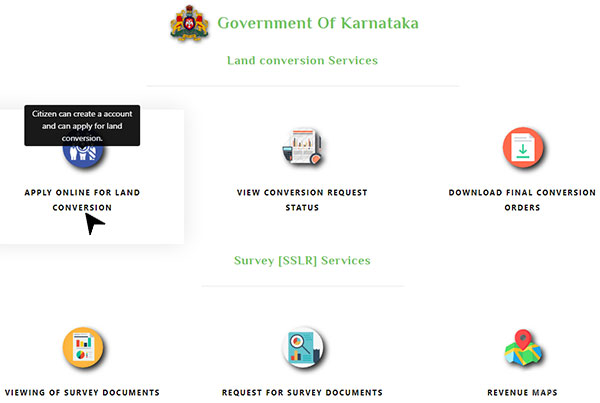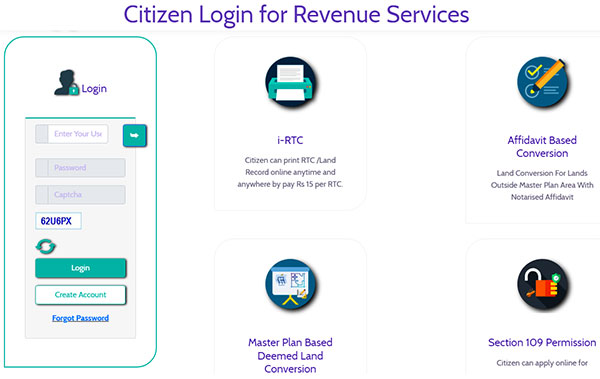DC Conversion of Agricultural Land in Karnataka - A Comprehensive Guide
- 19th Sep 2024
- 1564
- 0

Never miss any update
Join our WhatsApp Channel
In Karnataka, DC conversion is essential for using agricultural land for residential, commercial, or industrial purposes.
Ghar presents a guide on DC Conversion of Agricultural Land in Karnataka to help understand this process thoroughly and avoid potential legal issues.
Table of Contents
- Documents Required for Land Conversion
- Procedure to Obtain the Land Conversion Certificate
- How to Apply for Land Conversion Certificate Online
- Creating an Account for Online Application
- Benefits of DC Conversion of Agricultural Land
- Consequences of Not Complying with DC Conversion Laws
- Conclusion on DC Conversion of Agricultural Land
Importance of DC Conversion
DC conversion is a legal process that allows agricultural land to be repurposed for non-agricultural activities such as residential, commercial, or industrial use in Karnataka. This conversion is authorized by the District Commissioner, permitting the landowner to use the land for non-agricultural purposes. The application for DC conversion must be made under Section 95 of the Karnataka Land Revenue Act. Once the land is converted, the owner can obtain an A Khata Certificate, validating the land’s non-agricultural status.
Failure to obtain DC conversion for agricultural land can lead to penalties, and any constructions made on such land may be demolished by the authorities. Moreover, securing loans and building permits will become difficult. Any residential apartments built on agricultural land without DC conversion are considered illegal, making it crucial to obtain the conversion certificate before starting construction.

Documents Needed For Land Conversion
To convert agricultural land for non-agricultural use, the landowner must submit an application to the District Commissioner of the relevant district. The prescribed forms include Form 1 for tenanted land and Form 21 A for Patta land.
Documents Needed For Tenanted Land are as follows:
• Property Title Deed
• Copy of mutation record
• Copy of Form 10 to verify occupancy rights
• No due certificate from the village accountant
• Certified copy of the land tribunal order
• Zonal certificate from the Urban Development Authority or Town Planning Department
• Record of Rights, Tenancy and Crop Certificate (RTC)
• Certified survey map of the land
Documents Needed For Patta Land are as follows:
• No due certificate from the village accountant
• Mutation record copy
• RTC (Record of Rights, Tenancy, and Crop Certificate)
• Certified survey map of the land
In case the land is located near a riverbank or the seashore, a No Objection Certificate (NOC) from the Coastal Regulation Zone (CRZ) is compulsory.
Procedure to Obtain the Land Conversion Certificate
• Submit the application form along with the necessary documents to the Tahsildar or Sub-Divisional Officer (SDO) for approval.
• The concerned authority will conduct a thorough verification of the ownership and any existing encumbrances.
• Upon successful verification, the Tahsildar or SDO will consult with the planning and development authority to ensure the land falls within the Master Plan limits and there are no objections.
• The Change of Land Use (CLU) approval will be granted, and the Tahsildar will update the CLU details within 30 days of approval.
Method To Apply for Land Conversion Certificate Online:
To apply for a land conversion certificate online, visit the official Karnataka Government Land Records website.
Scroll down to find the tab for land conversion services and proceed with the application.

When you click on the "Apply Online" button for land conversion, you will be directed to the Land Records Citizen Portal.
Creating an Account for Online Application

Once your account is set up, complete the application by attaching the necessary documents, such as:
• Record of Rights, Tenancy, and Crops (RTC)
• Copy of the 11E sketch if there are multiple landowners
• Copy of the mutation certificate
• Affidavit on ₹200 stamp paper
The conversion certificate will be provided within 60 days, during which the land will be inspected by a department official. Should the landowner fail to initiate construction post-issuance, the authority may withdraw the certificate after a defined period.
Benefits of DC Conversion of Agricultural Land
Here are the key advantages of obtaining DC conversion for agricultural land:
• Legally permits the use of the property for residential, commercial, or industrial purposes.
• Helps avoid complications that arise from unauthorized construction on agricultural land.
• Facilitates access to loans, as financial institutions usually require DC conversion for agricultural properties.
• Makes it easier to acquire building and trade licenses necessary for construction and business operations.
• Increases the property's market value, allowing for multiple uses beyond agriculture.
• Ensures compliance with local land regulations, helping to avoid fines and potential demolition.
Consequences of Not Complying with DC Conversion Laws
• Failing to adhere to DC conversion regulations can lead to serious consequences, such as:
• Demolition of unauthorized structures.Fines and penalties.
• Difficulty in obtaining loans.
• Inability to secure building and trade licenses.
• Legal complications.
Conclusion on DC Conversion of Agricultural Land
To use agricultural land for residential or commercial purposes in Karnataka, obtaining DC conversion is essential. This not only safeguards against legal complications, penalties, and obstacles in securing loans or licenses, but also enhances the land's value and its potential uses. Buyers must verify the DC conversion status to ensure everything is compliant. By following these steps, you can manage your property efficiently and avoid any future issues.

 Admin
Admin



Comments
No comments yet.
Add Your Comment
Thank you, for commenting !!
Your comment is under moderation...
Keep reading blogs